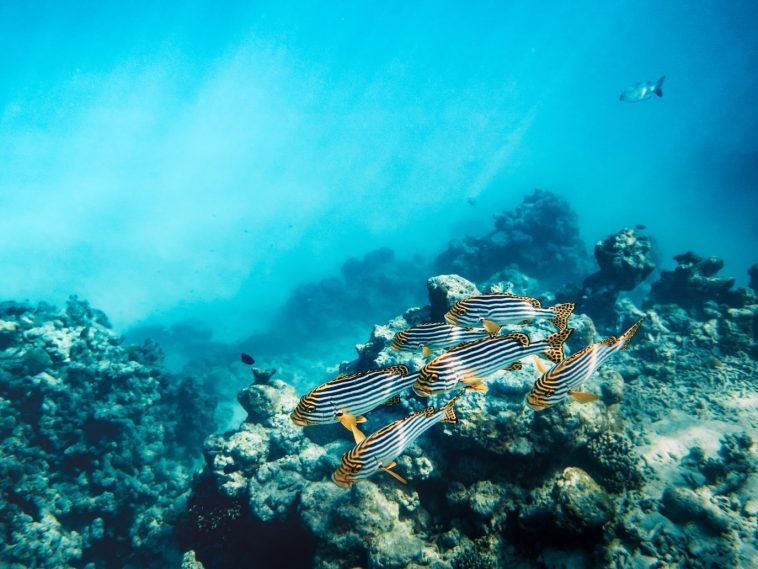Have you ever wondered what life is like for an underwater welder? It’s a fascinating job, full of adventure and danger. But how much money does it pay? In this article, you’ll learn about the salary range for underwater welders and what kind of career opportunities they have. With a unique skill set and exciting environment, these experts make great livings in the most extreme conditions!
Page Contents
Requirements for Becoming an Underwater Welder
Becoming an underwater welder is no easy task. It requires extensive training, a long-term commitment to safety protocols, and the ability to handle deep sea pressures. To achieve success in this field requires dedication and a willingness to take on some of the toughest welding tasks around.
The first step in becoming an underwater welder is obtaining certification through either ABYC or AWS (American Welding Society). This certification will require taking classes such as welding theory, undersea construction techniques, hazardous materials handling, rigging operations and more. Each program has its own set of requirements so prospective welders should carefully research what they need before beginning their journey.
In addition to certifications there are several other skills required for being successful in this profession such as strong problem solving abilities and excellent communication skills when working with divers or clients onshore from different locations or timezones. Other soft skills that can be beneficial include critical thinking processes and creativity since new challenges arise regularly during these projects and quick thinking solutions may be necessary for success.
Lastly but certainly not least is knowledge about all types of marine life so that it can be respected while performing any job related activities including identifying potential hazards like coral reefs, shipwrecks etc., understanding currents & waves, having basic diving knowledge etc.. All these components combined make up the foundation for becoming an experienced underwater welder which can lead to lifelong rewarding career opportunities!
How Much Education is Needed to Be an Underwater Welder?
Becoming an underwater welder is no small feat. It requires specialized training, certifications and a keen eye for detail. To become an underwater welder, you’ll need to complete several steps including:
• Acquiring a high school diploma or its equivalent – At the very least, most employers require that applicants hold a high school diploma or its equivalent in order to be considered for the position of underwater welder. However, some employers may prefer those who have completed post-secondary studies in welding technology or related fields such as engineering or fabrication.
• Obtaining necessary certifications – In addition to having the appropriate educational background, potential underwater welders must also obtain any additional certification required by their employer and/or state regulations. This could potentially include obtaining a commercial diving license from an accredited organization such as the Association of Diving Contractors International (ADCI). Additionally, many employers will also require prospective employees to pass specific tests related to dive operations and safety procedures before being hired on as an underwater welder.
• Developing expertise in welding techniques – Lastly, aspiring underwater welders should strive to develop their knowledge and proficiency with various types of welding processes used under water – typically including shielded metal arc welding (SMAW), gas tungsten arc welding (GTAW) and flux cored arc welding (FCAW). Depending on your employer’s preferences, it may even be beneficial for you to gain experience with other cutting methods like oxyacetylene torch cutting and plasma arc cutting while working towards achieving mastery over these three primary forms of wet welding practices.
How Much does an Underwater Welder Make?
Are you curious about the potential salary of an underwater welder? As with many jobs, it depends on a number of factors such as your experience level, the company you work for and where you live. Generally speaking though, most experienced welders can make well into six figures annually.
Underwater welding is one of the most dangerous jobs in the world due to its nature and working environment. The water pressure alone carries with it significant risk that other types of welding do not have. That said, due to this increased risk employers are often willing to pay higher than average salaries for qualified personnel in this field. Entry-level wages typically start around $50 – $60 per hour depending on location and company size but can increase significantly as skills advance over time or when taking on more complex projects such as pipeline repairs or deep sea platform maintenance.
In addition to these hourly rates employees may also receive additional bonuses based off job performance or hazardous conditions encountered during their shift; some companies will even provide tuition reimbursement programs if workers wish to pursue further training within their industry. With enough experience and training there’s no telling how much money could be made by someone who takes up the profession of underwater welding!
Factors That Affect An Underwater Welders Salary
Underwater welding is a fascinating and lucrative career path that requires a certain set of skills and qualifications. As with any job, the salary an underwater welder can expect to earn will be affected by several factors such as experience, location, type of work performed, certifications obtained and even the size of the employer. Let’s take a closer look at some of these important considerations in more detail.
Experience plays an essential role when determining how much money an underwater welder could potentially make. While entry-level positions may start off at lower salaries than what experienced welders are accustomed to earning, it won’t take long for those same individuals to secure better paying jobs with increased responsibility if they have proven themselves reliable over time. Employers typically offer higher wages for those who possess years of experience working safely under pressure, have amassed a wealth of knowledge related to their craft and demonstrate strong leadership qualities on the job site .
Location is another factor which has considerable bearing on income levels for this unique occupation. Underwater welders working in areas where there is high demand for their services are usually offered higher pay than those located in places where there isn’t great need or competition amongst employers vying for workers who specialize in this type of welding technique. In addition , regions that tend to attract larger businesses offering more comprehensive benefits packages also tend to boast higher salaries overall compared to locations populated by smaller companies or sole proprietorships which don’t always offer all the perks associated with larger corporations .
The types of projects undertaken by underwater welders also affects compensation levels significantly since some tasks involve greater risk and require specialized expertise while others may not be quite so complicated or dangerous but still pay well depending on industry standards within each particular geographic area . Furthermore , obtaining additional certifications beyond basic training requirements generally results in better opportunities with bigger firms , thereby increasing potential earnings accordingly . Finally , large companies often provide enhanced remuneration packages complete with bonuses , insurance coverage , travel allowances etc., whereas independent contractors merely receive payment based solely upon number hours worked multiplied by their hourly rate .
Benefits of Being an Underwater Welder
Being an underwater welder is a challenging and rewarding career. It can be incredibly fulfilling to combine the excitement of working in extreme environments with the satisfaction that comes from completing complex projects. There are many advantages to becoming an underwater welder, including:
First and foremost, as an underwater welder you will have access to a wide variety of interesting jobs. Underwater welders work on oil rigs, shipwrecks, pipelines, bridges and other marine structures – allowing you to explore new places while honing your craft. The experience gained through this type of work is invaluable; it will give you knowledge that could otherwise only be acquired by studying engineering or welding for years.
You can also learn valuable skills such as communication techniques and problem solving strategies which will help make you more successful at any job in the future. Additionally, being exposed to extreme conditions increases mental toughness which can benefit both professional and personal aspects of life leading to increased confidence when tackling difficult tasks no matter what field they may be related too. Furthermore because of the specialised nature of this profession pay rates tend to be higher than those offered elsewhere making it lucrative option if money is important consideration when choosing what career path one should embark upon .
Finally being able to work independently under pressure makes it ideal for anyone who thrives on responsibility and wants greater control over their own destiny without relying solely on employers or superiors for direction or inspiration – empowering individuals with greater autonomy in every aspect of their lives!
Working Conditions of An Underwater Welder
Being an underwater welder is a unique and specialized job. It requires skill, knowledge, and dedication to safety standards that are necessary in this line of work. Underwater welders must be able to operate in extreme depths while submerged for extended periods of time and withstanding the physical demands associated with it.
The working conditions of an underwater welder can vary greatly depending on the project they are assigned to. They may have to operate at any depth (from shallow waters up to 500 feet), often having limited visibility due to murky water or darkness. Working in such environments requires patience, focus, and precision as even small mistakes can lead to dangerous consequences. In addition, they must also wear special welding gear including protective suits, helmets, gloves etc., which help them withstand the pressure from deep sea dives but can make their movements more restricted than when performing similar tasks on dry land.
Underwater welders typically spend long hours submerged during projects; sometimes being required 12 or more hours per day for several days or weeks at a stretch – this means that the physical toll taken on their bodies can be immense after prolonged exposure in these conditions. The role also comes with its own set of risks: leaks from equipment malfunctioning could cause flooding; toxic gases such as carbon monoxide might leak out during welding activities; sharp objects found at the bottom of rivers/ocean floors could injure divers if not handled properly; plus there’s always a chance of drowning due to unexpected currents/waves etc.. All these potential dangers require extra levels of vigilance and caution when operating undersea – making sure all safety protocols are followed each time is key!
Different Types Of Projects For An Underwater Welder
As an underwater welder, you have the chance to work on some of the most exciting projects out there. From building bridges and pipelines to repairing ships and submarines, you can make a real difference in the world. Underwater welding is one of the most challenging jobs in engineering – but it’s also one of the most rewarding!
Underwater welders typically work with two types of projects: construction and repair. Construction projects involve constructing new structures or objects underwater using welding techniques. This could include anything from building a bridge over water to laying down pipes for oil rigs or other industrial applications. Repair projects involve fixing existing structures that are damaged, corroded, or otherwise need some attention below sea level. This could be anything from patching up a shipwrecked vessel to maintaining infrastructure such as dams and locks on rivers and oceans alike.
No matter what type of project you take on as an underwater welder, you will always be able to use your skills for good – whether it’s helping build something new or restoring something old back into its former glory! Here are just a few examples of different types of projects an underwater welder might work on:
• Building offshore wind turbines
• Installing submarine cables
• Constructing piers & docks
• Repairing ships & submarines
• Laying down pipelines undersea
• Maintaining coastal infrastructure
Wrapping it Up!
In conclusion, becoming an underwater welder is a challenging but rewarding career. It requires specialized training, education and certification as well as physical strength and stamina. The salary of an underwater welder can vary depending on location and experience level but it is generally quite competitive. Working conditions can be very dangerous but the rewards such as job satisfaction, new skills gained and high pay are worth it to many who pursue this profession. There are a variety of projects available for those with the right qualifications allowing them to further their skills while exploring the depths beneath our oceans.
how much money does a underwater welder make
Frequently Asked Questions!
An underwater welder can expect to make a salary ranging between $30,000 and $150,000 depending on experience and qualifications.
What Qualifications Do I Need To Become An Underwater Welder?
In order to become an underwater welder, you need to be certified as a commercial diver and have welding certifications from either the American Welding Society or the Canadian Welding Bureau. Additionally, it is recommended that prospective welders receive additional specialized training in underwater welding techniques.
Is Underwater Welding Dangerous?
Underwater welding carries risks due to its hazardous working environment; however, proper safety procedures can mitigate these risks significantly. These include following all applicable safety regulations when diving and welding as well as using appropriate protective gear like helmets, boots, gloves and other equipment designed for use in water.
What Equipment Is Used In Underwater Welding?
The most essential piece of equipment used in underwater welding is an arc-welding machine specially engineered for use in wet environments. Other devices such as air compressors, torches with special nozzles for cutting through metal under water are also utilized by welders during their work sessions . Furthermore , divers may require specific tools such as wrenches for making repairs at depths far below the surface of the ocean or lake bed where they’re operating .
Where Can You Find Job Opportunities For Underwater Welders?
Job opportunities for experienced underwater welders are available worldwide though some locations may be more competitive than others due to demand from local industries seeking skilled professionals . Companies specializing in offshore construction often hire teams of qualified divers with expertise in both engineering and deep sea operations while national defense organizations also employ personnel trained specifically to conduct maintenance tasks on weapons systems stored beneath the waves .





